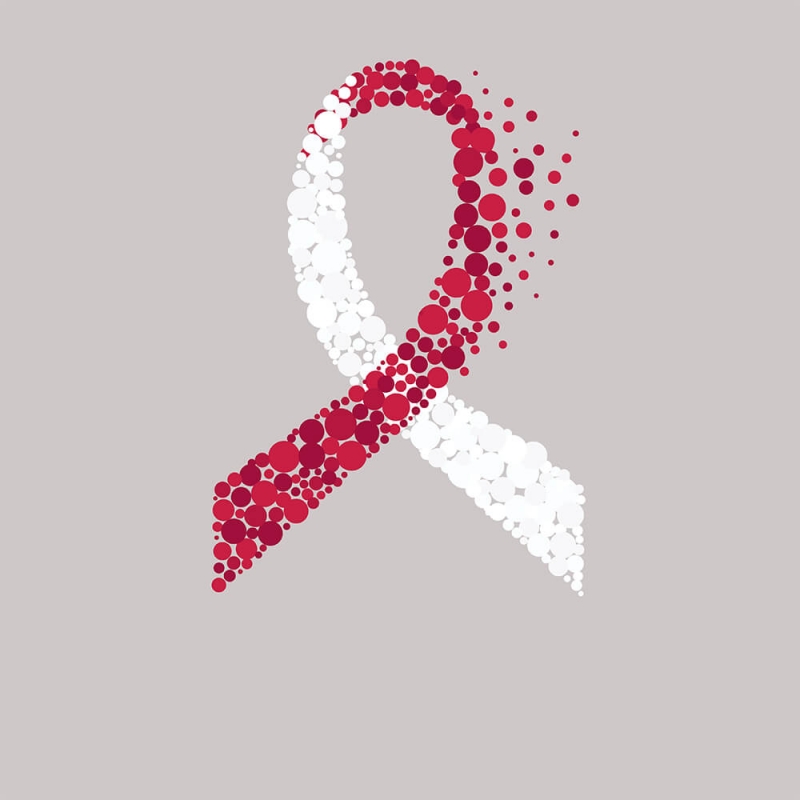April is Head and Neck Cancer Awareness Month. Head and neck cancers are a group of different types of cancers that develop in the throat, nose, mouth, sinuses, or larynx.
Types of Head and Neck Cancer
Head and neck cancers include:
- Laryngeal and Hypopharyngeal Cancer. Laryngeal cancer develops in the voice box, or larynx. Hypopharyngeal cancer develops in the lower throat.
- Oral Cavity and Oropharyngeal Cancer. Oral Cavity cancers occur in the mouth and tongue. Oropharyngeal cancer starts in the middle part of the throat, behind the mouth.
- Nasopharyngeal Cancer. Nasopharyngeal cancer starts in the upper part of the throat, behind the nose.
- Nasal Cavity and Paranasal Sinuses Cancer. Nasal cavity cancer starts in the nasal cavity, the opening behind the nose. Paranasal sinus cancer starts in the sinuses.
- Salivary Gland Cancer. Salivary gland cancer starts in the glands that produce saliva, located inside and near the mouth.
Risk Factors for Head and Neck Cancer
Not all Head and Neck Cancers can be prevented, but some outside factors are strongly linked to the disease.
Alcohol and Tobacco Use
Cancers of the oral cavity, hypopharynx, and the voice box are linked to alcohol and tobacco use. This includes exposure to secondhand smoke and chewing tobacco. People who use both tobacco and alcohol have a greater risk of developing head and neck cancers than those who drink alcohol or use tobacco alone. Reducing or eliminating consumption of alcohol and tobacco products, or limiting secondhand tobacco exposure, may reduce cancer risk.
Human Papillomavirus (HPV)
The HPV virus has been linked to cancers found in the back of the throat, on the base of the tongue, and on the tonsils. HPV may cause up to 70% of oropharyngeal cancer cases in the United States. The HPV vaccine for cervical cancer also protects against the types of HPV known to cause oropharyngeal cancers. HPV infection risk can also be lowered by consistent and correct usage of condoms and dental dams.
Other Factors
Head and neck cancers may also be caused by other factors like radiation exposure or Epstein-Barr virus infection. Genetics may also play a role.
Signs and Symptoms of Head and Neck Cancer
Signs and symptoms of head and neck cancers vary depending on the location and type of cancer, but may include:
- Mouth sores that won’t heal
- Red or white patches on gums
- A lump, thickening, or mass in the cheeks or neck
- Trouble chewing or swallowing
- Tongue numbness
- Voice Changes
- Difficulty moving tongue or jaw
These symptoms may also be caused by other, less serious conditions. Speak to your doctor or dentist if you develop these symptoms and have any concerns about head and neck cancer.
How is Head and Neck Cancer Treated?
A treatment plan will depend on the type and location of the cancer as well as factors like the stage of the cancer, the patient’s age, and their overall health. Treatment options may include:
- Radiation therapy
- Targeted therapies
- A combination of the above treatments
Radiation therapy may be recommended as the primary treatment for head and neck cancer, or in combination with other treatments, such as surgery or chemotherapy. The following types of radiation therapy may be used:
- External Beam Therapy (EBT). This form of radiation therapy delivers a beam of high energy x-rays to the tumor using a machine outside the body.
- Intensity Modulated Radiation Therapy (IMRT). This is a type of external radiation therapy that uses advanced technology to accurately direct the radiation beams at the tumor, avoiding healthy cells.
- Internal Radiation Therapy. Also called brachytherapy, this form of radiation is given through an implant that is placed in your body, near the tumor.
Head and neck cancer treatment is done to either remove the disease or control the growth of the disease. Care is also taken to preserve the function of the affected areas as much as possible and to provide support to help the patient return to normal activities as soon as possible.
Head and Neck Cancer Treatment at Arizona Oncology
At Arizona Oncology, we take a multidisciplinary approach to cancer care, ensuring you receive premier, evidence-based care close to home. Our doctors and support staff take a patient-centered approach, listening to you and helping you navigate your cancer journey every step of the way. If you would like to make an initial appointment or schedule a second opinion with one of our oncologists across the state of Arizona, visit our portal or call one of our locations directly.



